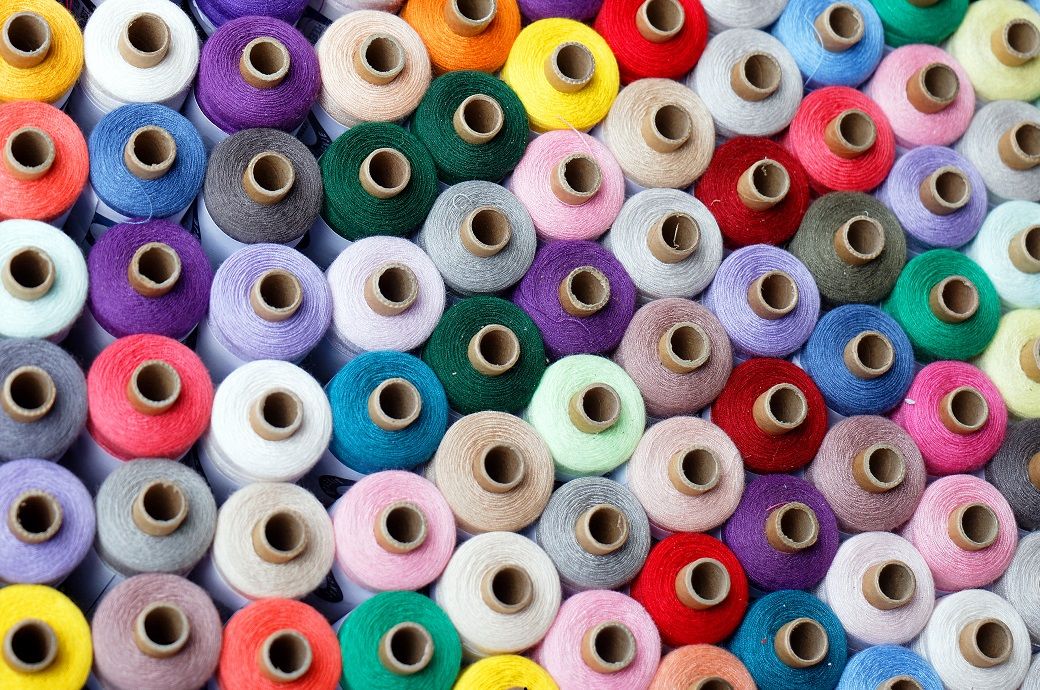
In the Ludhiana market, polyester-cotton yarn prices remained stable, but polyester yarn saw a ₹1-2 per kg increase across most varieties and counts. Demand for both polyester-cotton and polyester yarn was average. The rise in polyester yarn prices was attributed to the increased cost of virgin polyester fibre by dominant domestic producers. A trader from the Ludhiana market told Fibre2Fashion, “The market is facing tight payment conditions, which is affecting the consumer industry’s appetite. Seasonal demand is still weak but may improve in the coming weeks.”
In Ludhiana, 30 count PC combed yarn (48/52) was traded at ₹210-220 (approximately $2.45-2.56) per kg (GST inclusive); 30 count PC carded yarn (65/35) at ₹196-206 (approximately $2.28-2.40) per kg; 20 recycled polyester at ₹114-125 (approximately $1.33-1.46) per kg; 30 count polyester spun at ₹158-165 (approximately $1.84-1.92) per kg (GST inclusive); recycled polyester fibre (PET bottle fibre) at ₹79-82 (approximately $0.92-0.95) per kg; and virgin polyester fibre at ₹101.50 (approximately $1.18) per kg.
Surat’s polyester yarn market experienced an increase in specialised polyester yarn, such as fully drawn yarn (FDY), with prices rising by ₹1 per kg following a hike in virgin PSF prices. However, Surat is also grappling with payment constraints. According to market sources, demand remains sluggish, and payment conditions are tight. While specialised polyester yarn has seen a price gain, it remains uncertain whether this increase can be sustained in the market. Meanwhile, polyester spun yarn prices have remained stable.
In Surat market, 30 count polyester spun yarn was traded at ₹146-147 (approximately $1.70-1.71) per kg (GST extra); 40 count poly spun yarn at ₹159-160 (approximately $1.85-1.86) per kg; 50/48 fully drawn yarn (FDY) at ₹115-116 (approximately $1.34-1.35) per kg; 75/72 FDY at ₹105-106 (approximately $1.22-1.23) per kg; and 75 bright yarn at ₹105-106 (approximately $1.22-1.23) per kg.
Viscose yarn prices increased in the Mumbai and Surat markets due to multiple factors. Prices rose by ₹2 per kg in Mumbai, primarily driven by a supply shortage. In Surat, the price of 30 viscose vortex yarn also increased by ₹2 per kg, while 30 viscose compact yarn remained stable. Trade sources in Mumbai indicated that the rising US dollar against the Indian rupee has made viscose yarn imports more expensive. Additionally, higher shipping charges have contributed to the price increase. Reports suggest that some Indian state governments are issuing tenders to purchase viscose fabric for school uniforms. Seasonal demand for viscose yarn has also improved market sentiment. A trader from Surat mentioned that buyers are active in the viscose yarn market, but supply remains tight.
In Mumbai, imported 30 count viscose vortex yarn was priced at ₹197-203 (approximately $2.29-2.36) per kg; and local 30 count ring-spun viscose yarn at ₹201-206 (approximately $2.34-2.40) per kg. In Surat, 30 viscose compact yarn (local) was sold at ₹209-211 (approximately $2.43-2.46) per kg (GST extra) and 30 viscose vortex yarn at ₹199-200 (approximately $2.32-2.33) per kg.
In North India, cotton prices continued to rise due to tight supply in the open market and an increase in seed cotton prices. Cotton prices increased by ₹10-20 per maund (37.2 kg). According to traders, seed cotton prices are gradually climbing due to higher demand from ginning mills, which are purchasing at elevated prices in anticipation of further price increases in the coming months. Although the Cotton Corporation of India (CCI) is not very active in buying seed cotton at the minimum support price in North India, it could build up a significant stock of 10 million bales across the country, potentially leading to tighter supply and further price increases.
North India’s cotton arrival was 11,600 bales of 170 kg, comprising 600 bales in Punjab, 4,000 bales in Haryana, 4,000 bales in upper Rajasthan and 3,000 bales in lower Rajasthan. Cotton prices in Punjab ranged from ₹5,550 to ₹5,560 (approximately $64.62-64.74) per maund of 37.2 kg, while in Haryana, prices ranged from ₹5,550 to ₹5,570 (approximately $64.62-64.85). In upper Rajasthan, cotton was priced between ₹5,560- ₹5,580 (approximately $64.74-64.97) per maund. In lower Rajasthan, it was priced at ₹53,000 to ₹54,100 (approximately $617.11-629.92) per candy of 356 kg. While seed cotton was priced ₹7,100-7,500 (approximately $82.67-87.33) per quintal of 100 kg.
ALCHEMPro News Desk (KUL)
Receive daily prices and market insights straight to your inbox. Subscribe to AlchemPro Weekly!